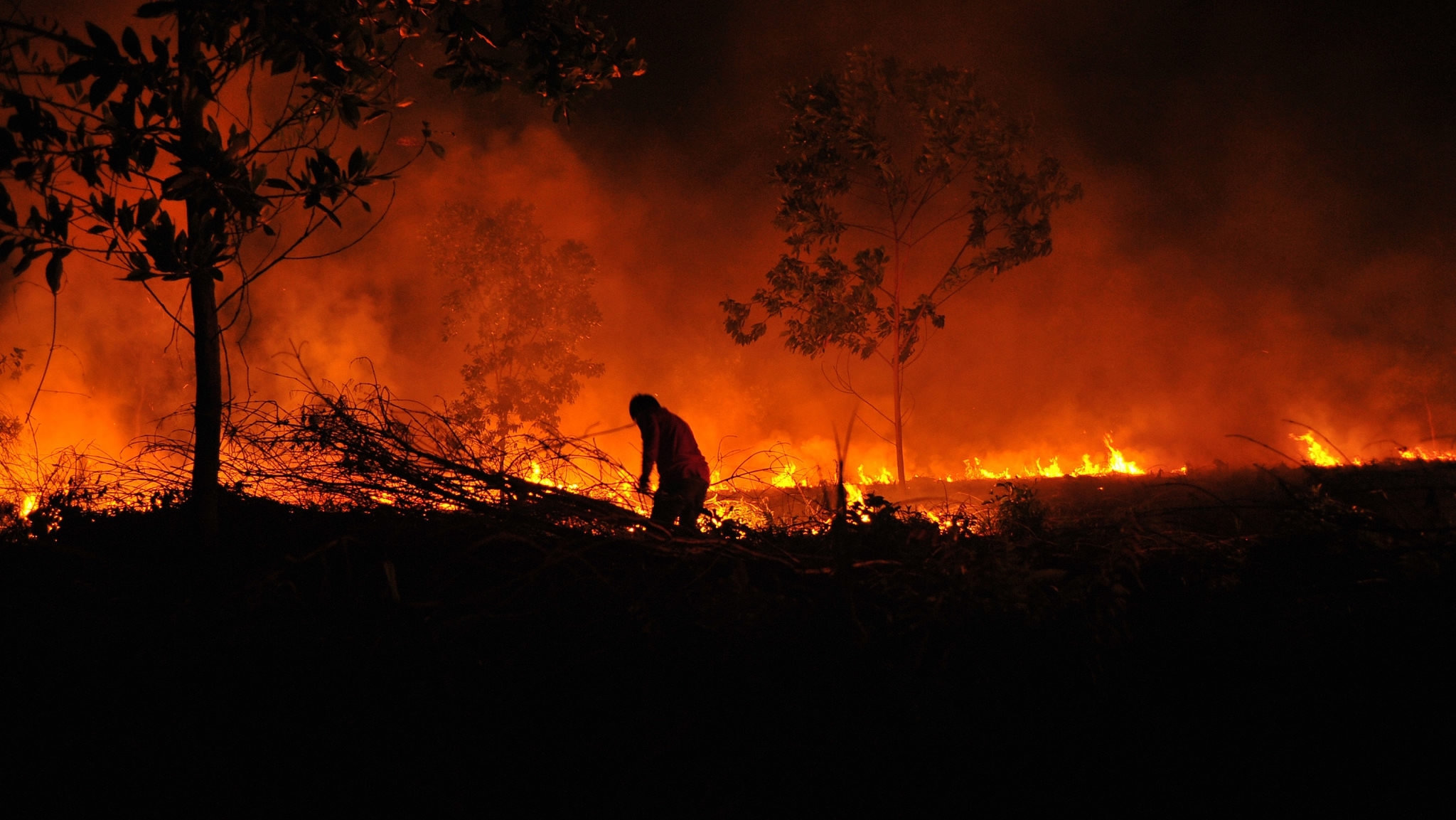
Tech & Sci
16:00, 19-Feb-2018
Unilever reveals palm oil source after transparency calls to save forests
Alok Gupta

Consumer giant Unilever has made the rare move of making public its supply chain of palm oil.
Unsustainable palm oil farming has led to massive deforestation in Indonesia and destroyed the natural habitat of orangutans.
A rush to meet high demand for the oil used extensively in food products and biofuel has led to the destruction of 31 million hectares of forest in Indonesia, an area almost the size of Germany, since 1990, according to a study published in Nature.
Environmental groups have been demanding transparency in the supply chain in Indonesia – the world’s largest producer of palm oil – to ensure the oil is procured through sustainable farming. Companies including Unilever were under pressure to declare their suppliers and mills from where palm oil is locally acquired.
Promising a full traceable supply chain, Unilever said it is making public details of 1,400 palm mills and more than 300 suppliers from which oil is sourced for manufacturing its products.
Palm oil production involves a series of processes from farming, shelling, extraction, processing, and refining. At each step, campaigners say, there are unsustainable practices like burning stubble to clear farmland, dumping palm leftovers, and human rights abuses at refineries.
“Due to traditional commercial sensitivities and the complexity of the palm oil supply chain, it has required perseverance to get to where we are now,” said Unilever Chief Supply Chain Officer Marc Engel.
“We are very proud to be the first consumer goods company to take this step. We want this step to be the start of a new industry-wide movement,” Engel added.
Deforestation equals orangutan declines and air pollution

Endangered orangutans /VCG Photo
Endangered orangutans /VCG Photo
Indonesia and Malaysia together account for 85 percent of the world’s palm oil production, and their forests are also the natural habitat of Bornean orangutans, found only on the tropical Borneo and Sumatra islands.
A recent study published in the journal Current Biology claimed deforestation due to palm oil, paper, and allied industries led to a decline of 100,000 in the orangutan population in the 16 years between 1999 and 2015.
In Sumatra, at least 10.8 million hectares of forest land were used for palm oil plantations. Most of these forests were cleared through the use of fire. In Katapang, Indonesia, fire was the cause of 90 percent of deforestation between 1989 and 2008, the study said.
It concluded, “Effective partnerships with logging companies, whose concessions harbor the majority of orangutans, are essential to curb orangutan loss.”
In 2015, large-scale burning to clear the forest led to the worst pollution the region has ever seen, choking orangutans and hitting the neighboring countries Singapore and Malaysia.
Consumer goods companies along with non-profits and governments established a Roundtable on Sustainable Palm Oil (RSPO) in 2004 with the aim of drafting voluntary guidelines for “greener” palm oil production. Unilever’s step to declare the supply chain is a part of the roundtable's action plan.
While companies are taking positive steps to ensure sustainable production, the world is seeing unprecedented demand for palm oil.
The global production of palm oil has risen steadily from 13.5 million tons in 1990 to 155.8 million tons in 2014. Demand is likely to grow six times by 2030 because of a switch to biofuel in Indonesia, China and the aviation industry.
“China and the aviation industry will consume 45.6 million tons of palm oil by 2030,” a study by Rainforest Foundation Norway claimed.

SITEMAP
Copyright © 2018 CGTN. Beijing ICP prepared NO.16065310-3
Copyright © 2018 CGTN. Beijing ICP prepared NO.16065310-3